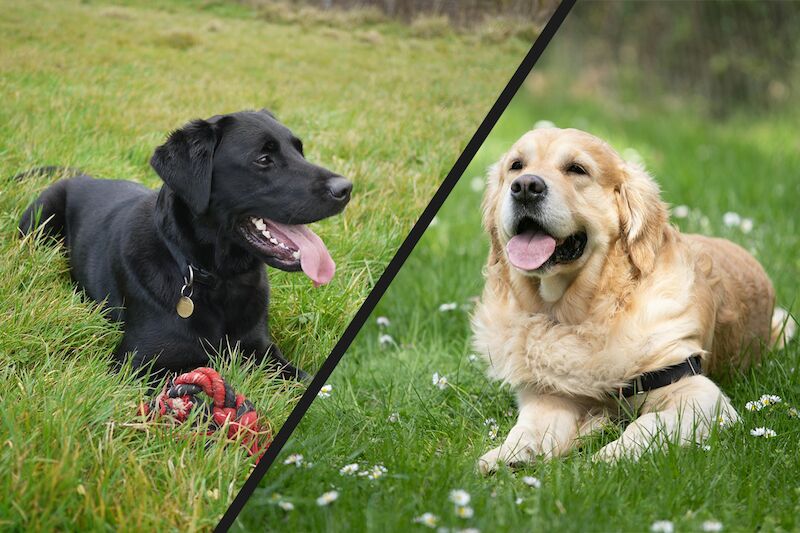Labradors are known for their friendly and loyal nature, but like all dogs, they have their own ways of communicating. Understanding your Labrador’s behavior will not only strengthen your bond but also help you address any behavioral issues before they become problematic. Whether it's their wagging tail or a playful bark, your Labrador is constantly giving you signals about how they feel. In this guide, we’ll explore common Labrador behaviors and what they mean.
1. The Wagging Tail: Not Always What You Think
Most people assume a wagging tail means a happy dog, but it's more complex than that. While Labradors do wag their tails when excited or happy, the speed and height of the wag can give you more insight. A slow wag may indicate uncertainty, while a fast, high tail wag often signals excitement. To dive deeper into Labrador body language, visit our Labrador Tail Wagging Guide.
2. Jumping: A Sign of Affection, but…
Labradors often jump on people to greet them, which might seem like a sign of affection, but it can also become an issue. Jumping can lead to accidents, especially with small children. Early training to discourage jumping is important. For training tips to stop jumping, visit our Guide to Correcting Labrador Jumping.
3. Excessive Barking
Labradors aren’t typically excessive barkers, but they may bark when excited, anxious, or trying to get your attention. Identifying the cause of their barking is the first step to controlling it. Learn more about how to manage barking in our article on Understanding and Reducing Labrador Barking.
4. Chewing: A Natural Instinct
Labradors, especially puppies, love to chew. This behavior is often driven by teething, boredom, or anxiety. Providing appropriate chew toys is crucial to keep them from chewing on furniture or other household items.
5. Separation Anxiety
Labradors are social dogs that form strong bonds with their owners. As a result, they can be prone to separation anxiety when left alone for long periods. Symptoms include barking, destructive behavior, and even attempts to escape. Learn how to address this issue in our Separation Anxiety Solutions for Labradors guide.
6. Digging: Understanding the Root Cause
While Labradors aren’t notorious diggers, some do enjoy this activity, especially if they’re bored or anxious. If your Labrador has taken up gardening, it’s important to provide them with mental and physical stimulation. For tips on managing digging, visit our article on How to Stop Your Labrador from Digging.
7. Leaning Against You: A Labrador’s Hug
You might notice your Labrador leaning against you from time to time. This is their way of showing affection and seeking comfort. Labradors are known to be “velcro dogs” that love to be close to their owners.
8. Licking: Affection or Anxiety?
Labradors often lick their owners or themselves as a form of affection, but excessive licking can also indicate anxiety or a medical issue. If your dog is licking excessively, it’s worth checking with a vet. For a better understanding of this behavior, visit our post on Why Do Labradors Lick So Much?.
9. Hyperactivity and Excitement
Labradors, especially when they’re young, can be quite hyperactive. They’re full of energy and need regular exercise to burn it off. If your Labrador is hyper and bouncing around the house, they likely need more physical and mental stimulation. Learn how to manage your dog’s energy in our guide on How to Deal with a Hyper Labrador.
10. Whining: What Does It Mean?
Labradors may whine for various reasons, including anxiety, excitement, or the need for attention. Paying attention to the context of their whining can help you understand what they’re trying to communicate. For more insight into this behavior, read our article on Understanding Why Labradors Whine.
Understanding your Labrador’s behavior is key to creating a happy and balanced life for your dog. By learning how to interpret their actions, you can provide better care and address potential issues early. If you're thinking of welcoming a Labrador into your home, don't forget to visit our Labrador Puppies for Sale page for more information on finding your perfect companion.
